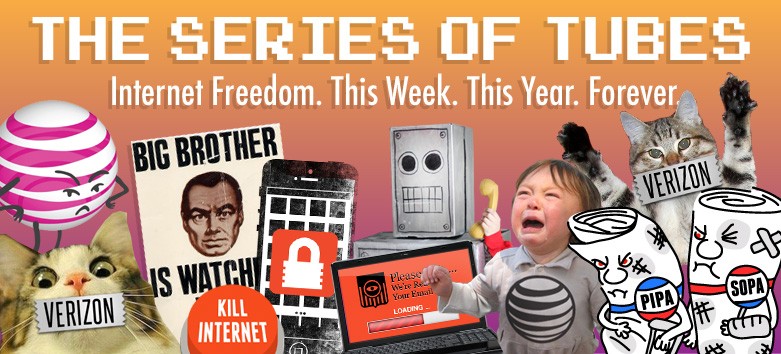
The Series of Tubes: The First Website EVER
In the second installment of “The Series of Tubes,” we bring you more far-flung facts from across the webosphere.
We celebrated the anniversary of the first website EVER, the pro-Net Neutrality vote from Verizon shareholders and a man who had the fortitude to spend one year away from the Internet.
And then there’s the bad stuff, like the fact that Facebook and Google are in a position to control our ability to communicate online.
That and more below:
1. Tim Berners-Lee invented the World Wide Web more than 20 years ago while working for the European Organization for Nuclear Research (CERN) in Geneva. The fascinating story came to the fore again as CERN celebrated the 20th anniversary of its decision to make the Web freely available to the world. To celebrate, the organization moved the very first Web page back to its original URL. So cool.
Also cool: this image of the first-ever Web browser.
2. There’ll soon be a new sheriff at the Federal Communications Commission and his name is Tom Wheeler. The Verge says he’s “the man who could control your digital life.” Assuming Wheeler makes it through the Senate confirmation process, he’ll have a lot of ground to cover, including the “coming war over Net Neutrality,” which, writes Columbia Law Professor Tim Wu, has a good chance of reaching Wheeler’s gates.
3. Verge writer Paul Miller took a full year off from the Internet and lived to tell the tale. It’s not what you might expect.
4. Last year a pro-Net Neutrality proposal put before Verizon shareholders received 7.9 percent of the votes at Verizon’s annual shareholders meeting. This week a similar proposal got a better reception: Nearly one-quarter of the shareholders voted for it. The push to secure Net Neutrality from the inside is growing.
5. One guy’s mom watched The Matrix for the first time and then described what she thinks happened.
6. The award for greatest global threat to the Internet since the Anti-Counterfeiting Trade Agreement goes to the Trans-Pacific Partnership Agreement. The Electronic Frontier Foundation has more on what this Pacific Rim-focused trade deal means for copyright and the open Internet.
7. Our freedom of speech now often depends on the policies of private companies like Facebook and Google. Jeffrey Rosen at the New Republic takes an in-depth look at “the Deciders” who determine what is and isn’t acceptable speech online.
8. Last month the House passed CISPA, the privacy-killing cybersecurity bill. The Senate declined to take it up, choosing to start from scratch on its own legislation. We need to remind lawmakers that we don’t need to sacrifice our online privacy in exchange for security. We can have both.
9. Finally, 17 animals that don’t know what just happened to them.